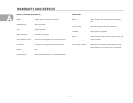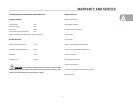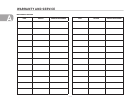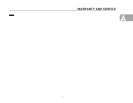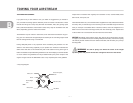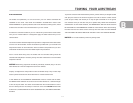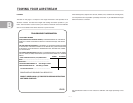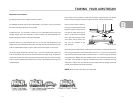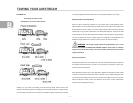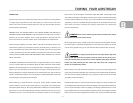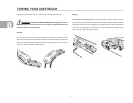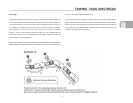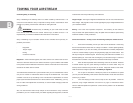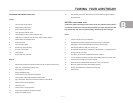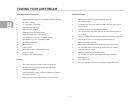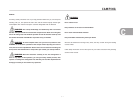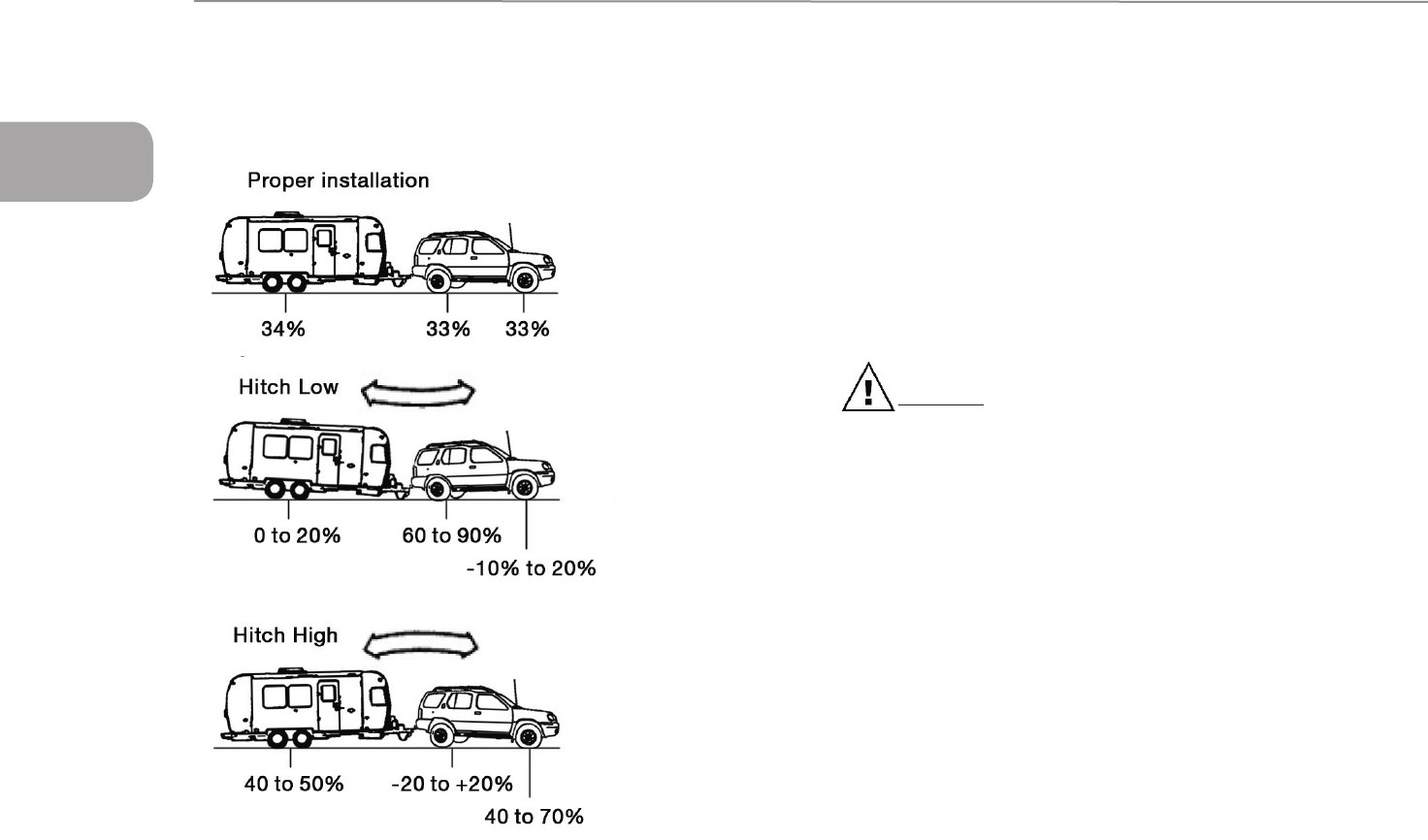
B
TOWING YOUR AIRSTREAM
B - 5
HITCHING UP
Hitching up your trailer is something that will become almost second nature with
practice. The following section includes proper hitch load distribution. Proper training
on connecting your trailer to a tow vehicle is essential for safety. Please see your dealer
or other qualified personnel for instruction on the proper hitching of your trailer.
Equalizing Hitch Load Distribution
When a trailer is hitched up properly to a tow vehicle with a load equalizing hitch,
approximately 1/3 of the trailer’s tongue weight will be on the trailer’s axles and 2/3 will
be transferred to the tow vehicle, 1/3 of this weight transfer will be carried by the front
wheels and 1/3 by the rear wheels of the tow vehicle (See diagram), Thus, the tire load
of each wheel on the tow vehicle will be increased by 1/6 of the trailer’s tongue weight.
The tire air pressure of the tow vehicle should be increased to compensate for this
additional weight. Refer to the vehicle’s owner’s manual for this information.
WARNING: The tongue weight should he approximately 10% of the
trailer’s total weight, but MUST NOT EXCEED 1,000 lbs. And, under no condition
should it exceed the hitch rating. Your hitch installer should provide your hitch
rating information.
Sway Control Device
Although Airstream has not intruded into the hitch manufacturers field of expertise
and performed formal testing, we find the vast majority of Airstream owner’s pur-
chases sway-control devices.
When passed by large trucks or when exposed to sudden crosswinds the trailer will be
“pushed” and this action will be felt in the tow vehicle. It’s our understanding the sway
control devices will reduce the amount of movement and make towing more comfort-
able and add some safety. Follow the directions of the sway control manufacturer
when having it installed and using it.
Percentage of Tongue Load
distributed to car and or trailer wheels



